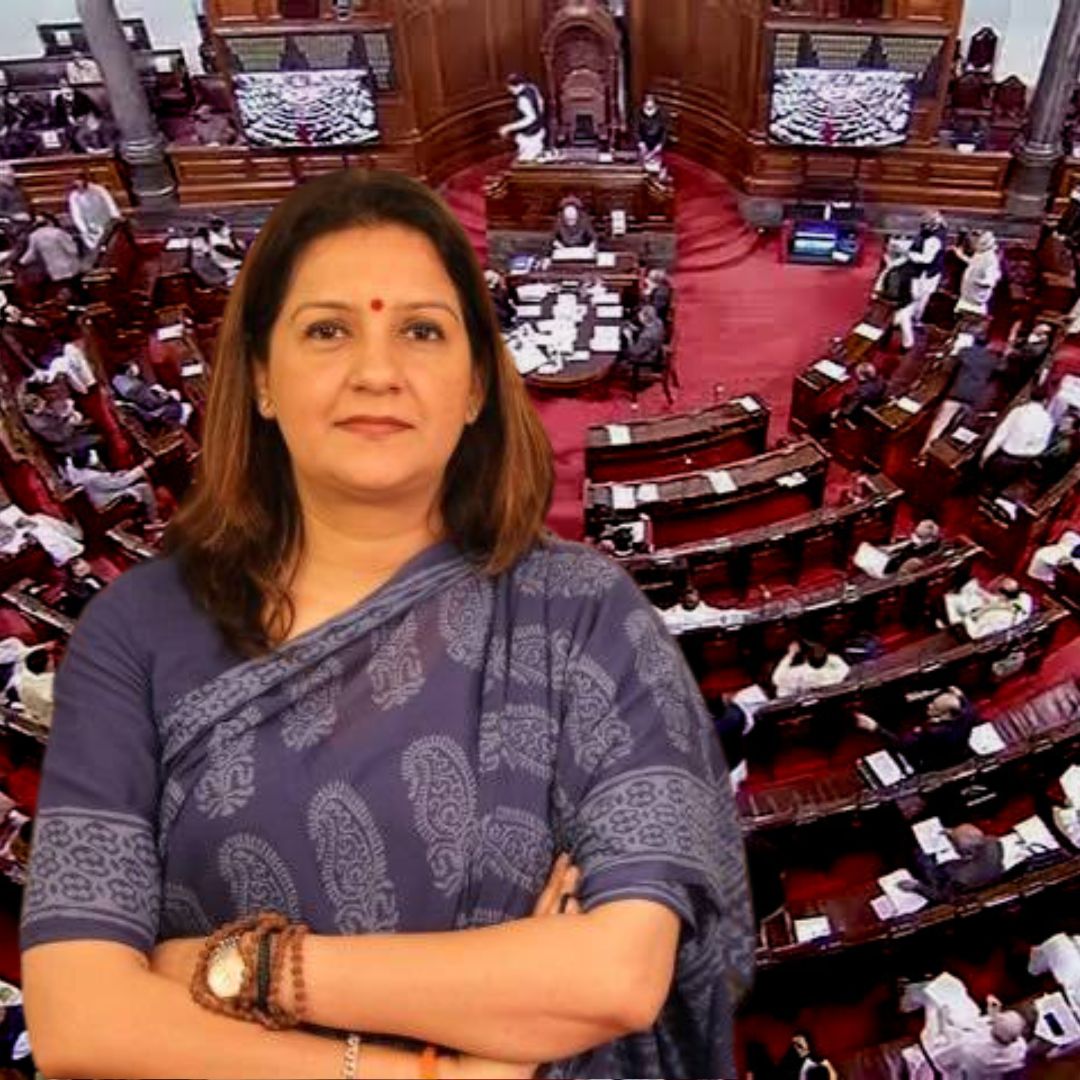
Image Credits: Twitter and Economic Times
Rajya Sabha Drops 'No Sir', Will Address Members In Gender Neutral Terms
Writer: Laxmi Mohan Kumar
She is an aspiring journalist in the process of learning and unlearning many things. Always up for discussions on everything from popular culture to politics.
India, 23 Sep 2022 8:23 AM GMT
Editor : Snehadri Sarkar |
While he is a massive sports fanatic, his interest also lies in mainstream news and nitpicking trending and less talked about everyday issues.
Creatives : Laxmi Mohan Kumar
She is an aspiring journalist in the process of learning and unlearning many things. Always up for discussions on everything from popular culture to politics.
In a landmark decision, the Rajya Sabha has decided to drop phrases such as "No Sir", and has directed members to use inclusive language through gender-neutral terms.
In a written response to Shiv Sena Member of Parliament (MP) Priyanka Chaturvedi, the Rajya Sabha recognised the need to bring inclusivity into the sessions by addressing everyone in gender-neutral terms. With people coming out with different gender identities and stepping into the mainstream, it has become a need to identify them using terms that do not fall under a binary notion of him or her.
With a positive response received toward her request, Chaturvedi said, "Although this may seem like a small change, it will go a long way in giving women their due representation." However, the conversation goes beyond women's representation and has initiated a conversation on the subconscious use of gendered terms and unlearning them consciously.
A Small Change For A Bigger Movement
Chaturvedi had written a letter addressed to Parliamentary Affairs Minister Prahlad Joshi on September 8, requesting a change in the use of gendered phrases such as 'No Sir'. These terms are often used as standard responses during the sessions, and they paved the way for an "institutional gender mainstreaming". Calling the House a "temple of democracy", Chaturvedi urged the minister to issue directions to address the parliamentarians as per their gender identity.
Responding in agreement, the Rajya Sabha Secretariat said, "the ministries will be informed to furnish gender-neutral replies to the Parliamentary questions from the next session of Rajya Sabha onwards." As per a report by the Indian Express, the secretariat also conveyed that as per the rules of official procedure and conduct, all the proceedings of the House would be addressed to the Chair, and responses would be framed to the "chairperson".
Thanking the Rajya Sabha through a tweet, Chaturvedi was delighted to share the change that would be introduced in the House. She said, "Although this may seem like a small change, it will go a long way in giving women their due representation in the Parliamentary process."
Small step, big difference. Thank the Rajya Sabha Secretariat for correcting the anomaly in parliament question responses from ministries to women MPs. Henceforth the replies will be gender neutral from the ministries. pic.twitter.com/1m0hxBGmvn
— Priyanka Chaturvedi🇮🇳 (@priyankac19) September 21, 2022
A Switch From Subconsciously Gendered Terms
From a very early stage, people have been conditioned to think and express themselves in a gendered language. The contributive factors to this range from school books to even the language of the highest legal structures. Gender inclusivity is not a subject that was traditionally introduced within Indian society, and this has influenced the way in which many people were excluded from the mainstream.
Language is one of the primary filters through which the world is perceived. The majority of the judgements and decisions revolve around the language through which a message is conveyed. The Rajya Sabha response, while tagged as a small move, showcases how switching to gender-neutral pronouns is a practice that would give due respect to those who fall within and outside the binary.
It helps many in the community to feel recognised, safe and included. As a first to the same, a person can consciously identify the gendered terms that end with a default "-man", such as delivery man, postman, sportsman, and so on. The words can be replaced with the terms "worker" or "person" in a manner that postman becomes postal worker and sportsman becomes sportsperson. This would normalise the concept that no job or situation is gendered unless we attach it to a specific gender.
Practising it further could start from the simplest step of addressing crowds as "Hello everybody", instead of "Hello ladies and gentlemen". This has been a historical practice right from the time we discussed "mankind" or 'the achievements of common man", even when we spoke of others within the spectrum.
At a time when people are exploring and understanding different gender identities and not confining themselves within the stereotypical standards, it becomes important to institutionally and personally make the space for change.
 All section
All section














